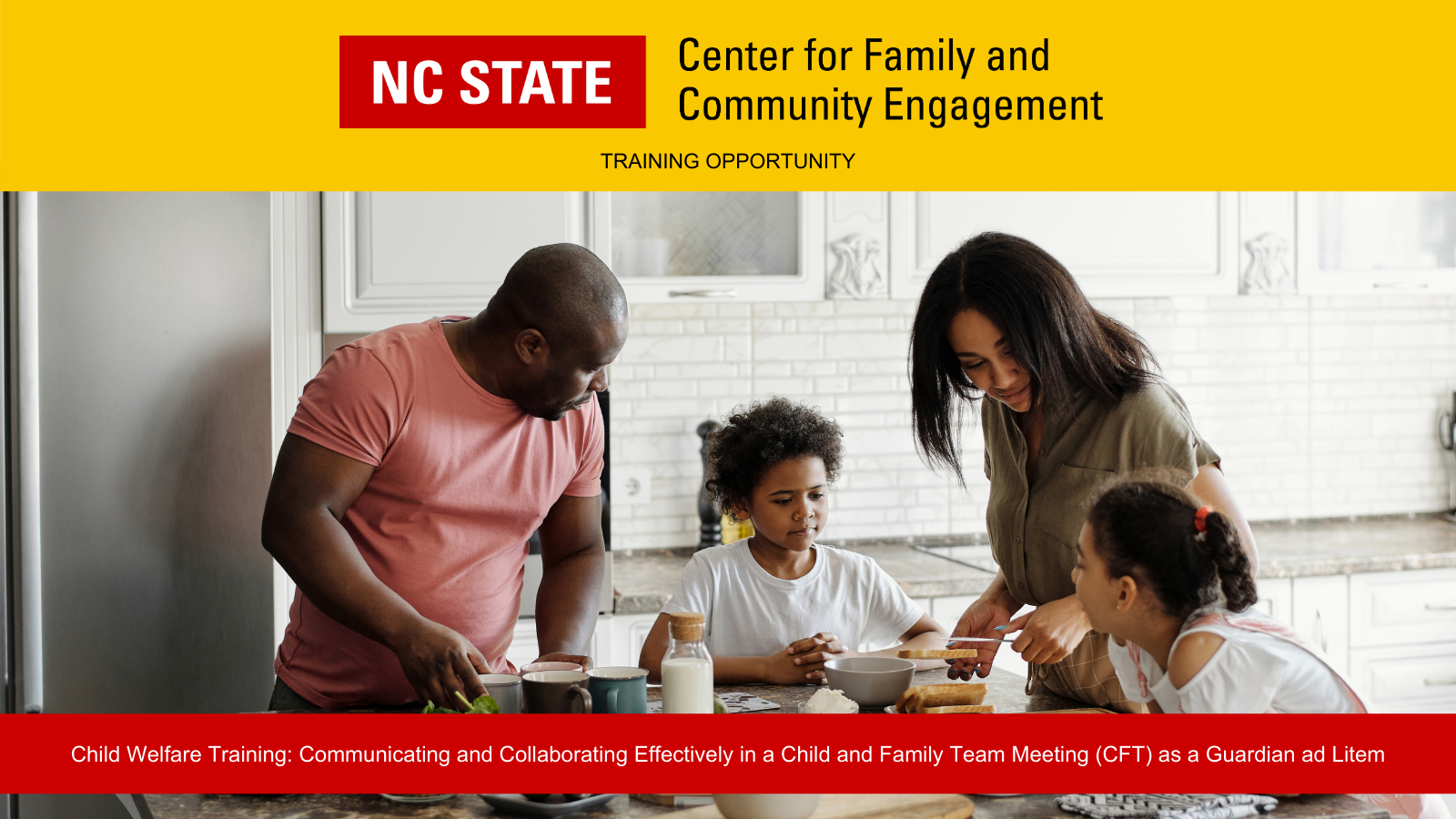Communicating and Collaborating Effectively in a Child and Family Team Meeting as a Guardian ad Litem

“Communicating and Collaborating Effectively in a Child and Family Team Meeting (CFT) as a Guardian ad Litem,” is a 2-hour self-paced, on-demand, certificate-bearing course that aims to serve as a resource for Guardians Ad Litem when navigating the CFT process. Upon completion of this course, you will gain communication skills that promote effective participation and collaboration with NC DSS (North Carolina Department of Social Services) social workers and facilitators during child and family team meetings (CFTs). Integrated into the learning material are the voices of foster parents, foster youth, and advocates sharing their lived experiences.
This course consists of four modules that will help those advocating and supporting children/young people placed in out-of-home care:
Module 1: Information, Infrastructure, and the Importance of a Child and Family Team Meeting as a Decision Making Process.
- Family Centered practice is defined, practice principles shared, the definition of a CFT is discussed and structure of the CFT meeting is explored. Other elements such as who are invited participants and why these meetings are important are also highlighted. An activity to put the information together concludes this module.
Module 2: Communication, Conflicts and Challenges.
- Information related to advocacy for the child and youth as part of the CFT process is shared, whether or not a child/youth should be present at a meeting is explored and the role of conflict within a CFT is also discussed. How to facilitate the creation of a collaborative environment is also included within this module. An activity concludes this module, and additional tools are shared to assist a Guardian Ad Litem before, during, and after a meeting.
Module 3: Development of a Plan.
- This module discusses the steps required to develop a plan as part of the meeting.
Module 4: Application.
- In conclusion of this training, the information gained in the previous modules will be put into practice with use of a case scenario, brief activities and a discussion board.
If you are interested in participating in this course and other child welfare training, click here for more information!


